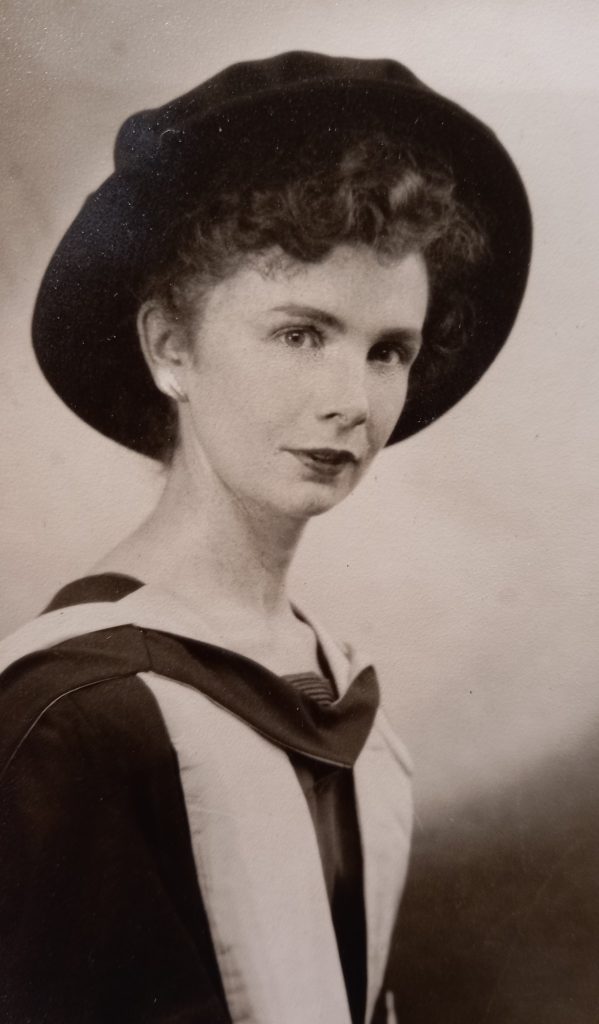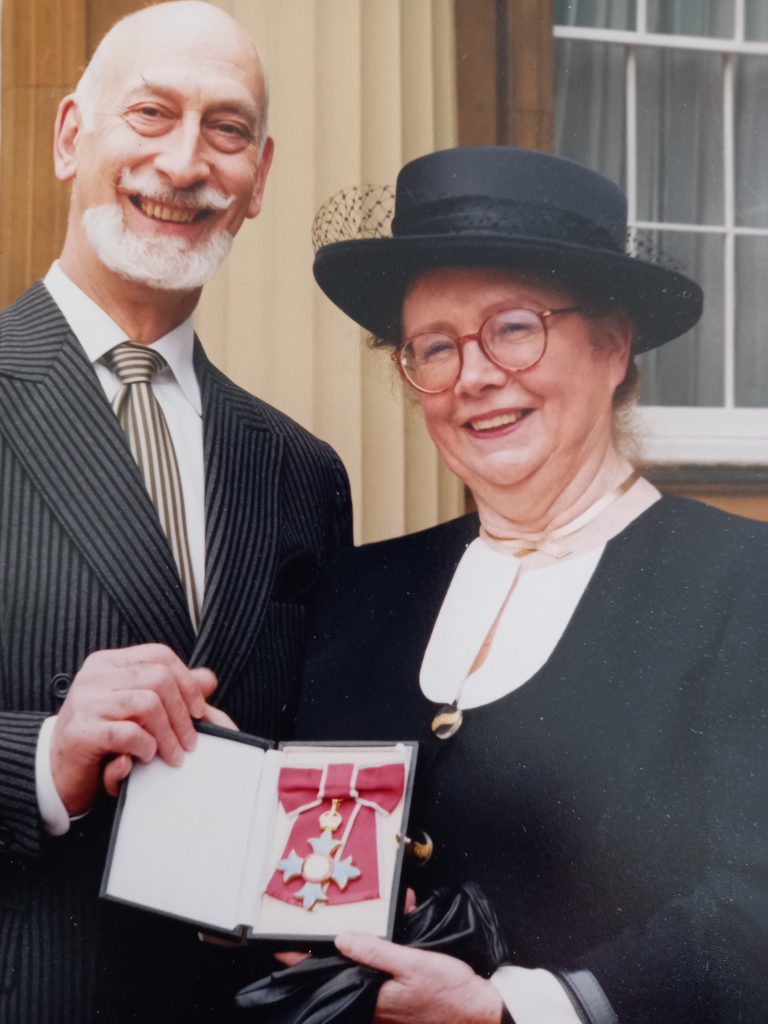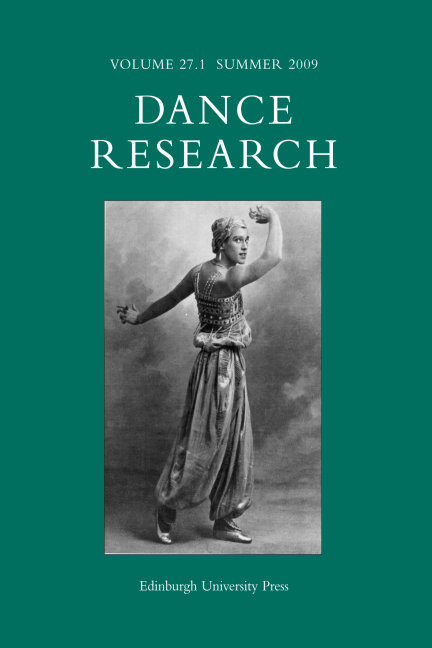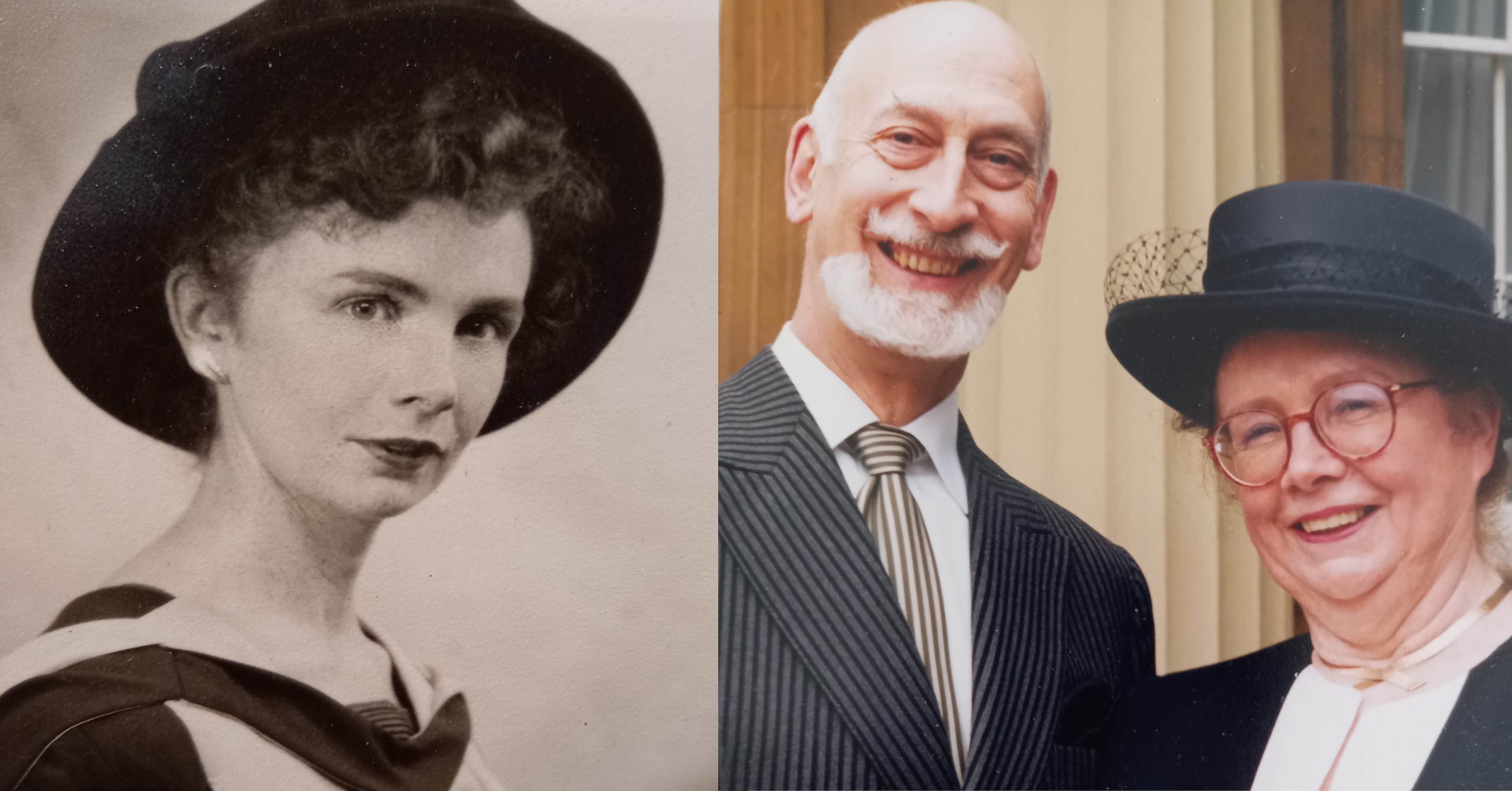
by Richard Ralph
In March this year, Dance Research lost two of its core members from its editorial team – Margaret McGowan and Clement Crisp, who had each been with the journal since its inception forty years ago.
I have known them both for fifty years, having first met Margaret McGowan during my doctoral research at the University of Sussex, with her work on French court dance serving as a precedent for my own research project. We had a friendly chat, where she mentioned potential Jesuit sources, and that was that – the connection had been made! How typical of Margaret, busy as she always was, to afford time and hospitality to an unknown scholar from a university that was not her own.

Margaret had served as ‘Assistant Editor’ from the first issue of Dance Research in 1983. She then shared the title of ‘Associate Editor’ with Clement from 2001, before returning to the position of ‘Assistant Editor’ in 2016. During her long association with the journal, Margaret provided around forty book reviews, several original articles, and translated the work of a number of excellent younger French scholars whom she introduced to the journal.
I was privileged to edit the Festschrift offered to Margaret in 2007 in recognition of her work for the journal over many years[1]. Margaret and I shared strong links to the Warburg Institute, where she had received supervision for her doctoral studies, and I had been taught as an Oxford undergraduate. The Warburg was welcoming to dance as a subject for serious scholarly study at a comparatively early juncture, and both Margaret’s doctorate and mine were, to some extent, Warburg-influenced. As was Dance Research in its early years. Over the years, her contribution to the journal came to demand more time, but her effort was always focused on the reading of texts rather than any involvement with contributors or authors.
I first met Clement whilst he was Librarian-Archivist of the Royal Academy of Dancing (as it was known until 2000) and curator of the now dispersed PJS Richardson collection of early dance books. He provided me with invaluable access to printed sources, including some by John Weaver, the subject of my doctoral dissertation at Oxford.
His contribution to the journal was very different from Margaret’s – but, like her, he was crucial to its early success. Clement, with his unrivalled prestige within professional dance circles and in the domain of ballet criticism and popular dance history, secured first-hand testimonies from those who had shaped twentieth century dance across number of important articles and edited memoirs.
Like Margaret, he proofread each issue and hosted editorial board meetings at his London home in Westminster. Clement possessed an eager apprehension of the heart of any matter, an unerring critical eye, and a nose for the bogus and half-baked. Over many years, I received countless annotated scripts from Clement, dispatched in pre-email day, which were always replete with fleeting observations and his characteristic aperçus.
Although Clement’s involvement with the journal had diminished in recent years, Dance Research never went to press without the benefit of his eagle eye cast over articles that were to his taste – including the translation of the official Soviet report on the Beijing Dance School from the 1950s published in the last issue.

Margaret, Clement and I shared a collective vision of a developing community of dance scholars whose research was made publicly available, allowing people to explore dance-related subjects in a multiplicity of ways, whilst being open to those with widely differing approaches and convictions. Irrespective of the stage they had reached in their careers, we always aspired to work with scholars in a friendly and developmental way and to encourage clarity and good writing, designed to make or encourage debate.
Both Clement and Margaret have left a permanent mark on the journal.
We are planning to offer a prize in their names for scholars aspiring to the highest standards while seeking originality in subject matter or critical approach – ambitions shared in life by Clement and Margaret.
The British Academy, of which Margaret served as Vice President between 1996-98, will host an event in 2023 to honour Margaret’s life and work.
[1] ‘The Art that all Arts do Approve. Manifestations of the Dance Impulse in High Renaissance Culture. Studies in Honour of Margaret M. McGowan’, Dance Research 25.2 (Winter 2007)
The following issues will be free to access on the Edinburgh University Press website until November 2022.
Read Volume 21, Issue 1, April 2003 (Clement Crisp’s Jubilee Volume)
Read Volume 25, Issue 2, October 2007 (Featuring Margaret’s Festschrift, edited by Richard Ralph)
About Dance Research

Dance Research, the journal of the Society for Dance Research, is essential reading for those involved in the study and practice of dance. The journal covers dance worldwide both from a historical and contemporary perspective, engaging with current debates on dance and across cognate disciplines with dance at the centre of inquiry.
Find out how to subscribe to DRS, recommend to your library, sign up for Table of Contents alerts, and submit a paper.
Want to keep up with all of the latest content from Edinburgh University Press?





